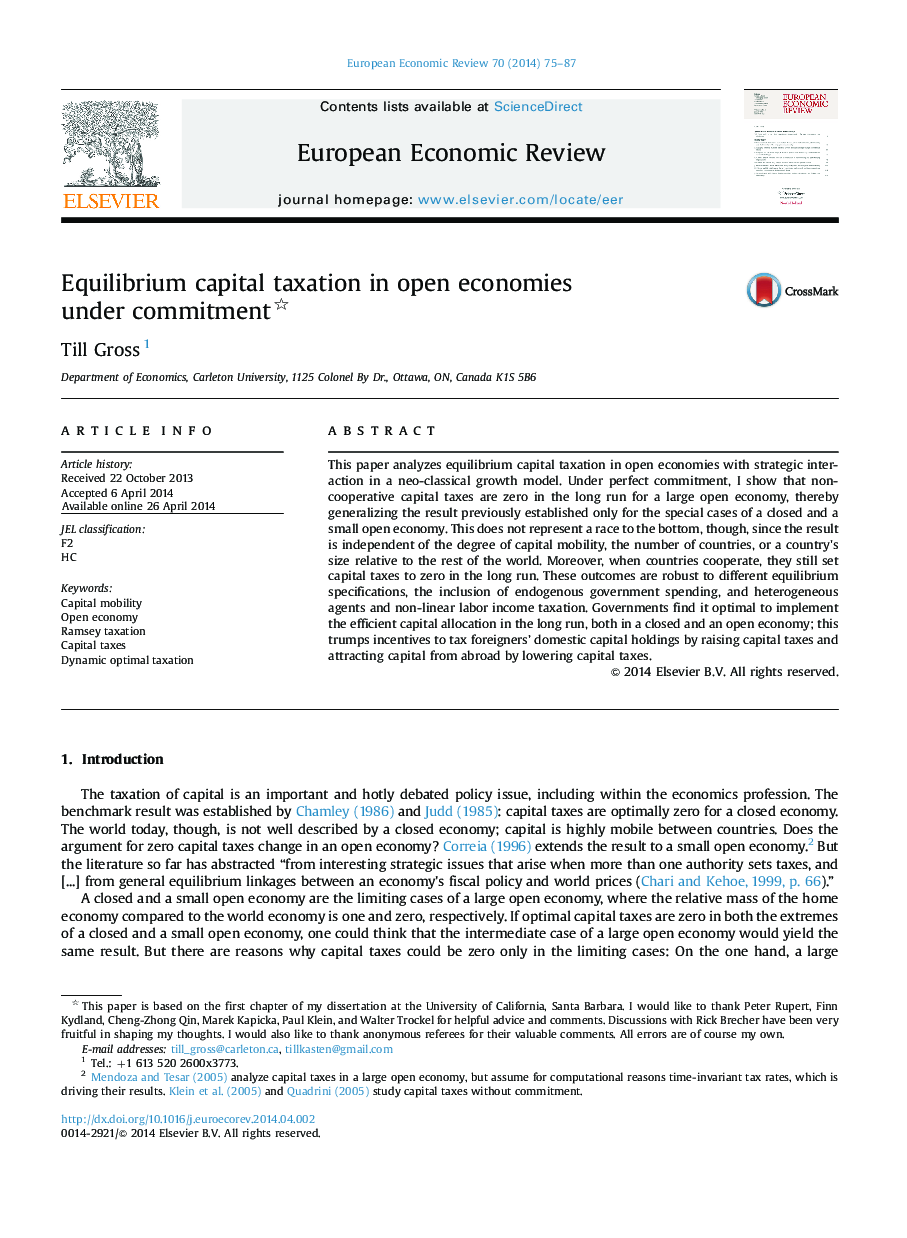| Article ID | Journal | Published Year | Pages | File Type |
|---|---|---|---|---|
| 5066706 | European Economic Review | 2014 | 13 Pages |
â¢Analyzes equilibrium capital taxation with strategically competing governments.â¢Global capital stock is endogenous as in a neo-classical growth model.â¢With perfect commitment equilibrium capital taxes are zero in the long run.â¢Not a race to the bottom: result holds in a cooperative and non-cooperative game.â¢Robust to degree of capital mobility, number of countries, asymmetries, and more.
This paper analyzes equilibrium capital taxation in open economies with strategic interaction in a neo-classical growth model. Under perfect commitment, I show that non-cooperative capital taxes are zero in the long run for a large open economy, thereby generalizing the result previously established only for the special cases of a closed and a small open economy. This does not represent a race to the bottom, though, since the result is independent of the degree of capital mobility, the number of countries, or a country׳s size relative to the rest of the world. Moreover, when countries cooperate, they still set capital taxes to zero in the long run. These outcomes are robust to different equilibrium specifications, the inclusion of endogenous government spending, and heterogeneous agents and non-linear labor income taxation. Governments find it optimal to implement the efficient capital allocation in the long run, both in a closed and an open economy; this trumps incentives to tax foreigners' domestic capital holdings by raising capital taxes and attracting capital from abroad by lowering capital taxes.
